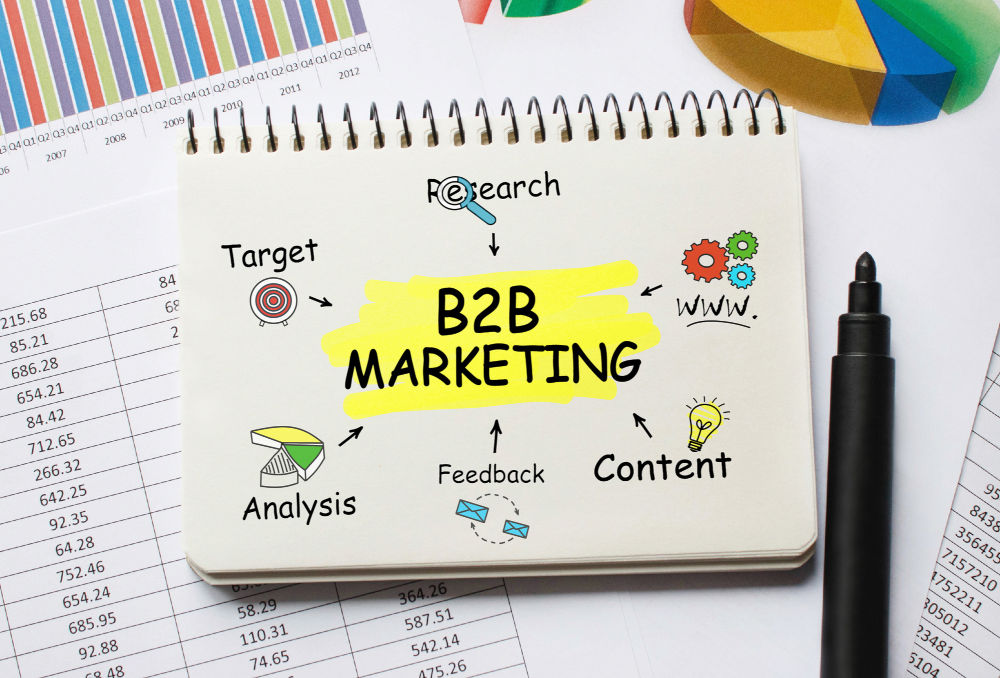It goes without saying that B2B marketing and other marketing strategies are highly prioritized these days. In fact, companies spend up to 11 percent of their annual budgets on marketing.
But what is B2B marketing and why is it so important in today’s overall business landscape? How do you form your own B2B marketing strategies?
That’s what we’re here to look at today. Read on to find out more about B2B marketing and why they remain crucial in 2022.
What is B2B Marketing?
B2B marketing, or business-to-business marketing, is the process of creating products or services for other businesses instead of directly to customers. This is the key difference between B2B versus B2C.
B2C stands for business-to-customer and involves creating products and services specifically for customers’ use. As such, there’s a greater focus on the bottom line and calculating returns on investments.
This often makes B2B marketing a lot more informational and straightforward. In fact, many B2B marketing strategies focus on selling products to committees that involve several stakeholders.
This presents a unique challenge to B2B marketers, as they need to navigate this complex environment. But who actually uses B2B marketing?
Who Uses B2B Marketing?
Companies that provide products or services for other businesses and companies require B2B marketing to generate leads.
This casts a pretty wide net in terms of the types of businesses that need these marketing strategies. Whether it’s security solution companies or office suppliers, a lot of different businesses benefit from B2B marketing.
B2B marketing is crucial for those who communicate with representatives that make purchasing decisions. This includes anyone who buys products and services for their companies.
These might be entry-level assistants or high-level secretaries. Either way, B2B advertising, and marketing focus on their needs and how they can benefit from a B2B company.
Benefits of B2B Marketing
The overall benefits of a successful B2B marketing strategy include increased sales and improved traffic on their sites. Let’s break some of these benefits down to get a better sense of why B2B marketing is so important.
Increased Sales
By employing different strategies for each client, B2B companies improve their odds of selling their products or services. Furthermore, a well-defined vision and goal provide more opportunities to make a conversion.
This all leads to increased sales for B2B companies. It increases opportunities and resources for companies to expand their products down the line.
Greater Brand Awareness
By incorporating a dedicated B2B marketing strategy, companies leave a solid imprint in their industries. A solid marketing strategy means clients will remember your brand and encourage others to do business with you.
Web Traffic
B2B marketing isn’t just about focusing on specific clients. It helps generate more eyes on your product and creates greater buzz around your network.
If your marketing strategy includes SEO and similar lead-generating tactics, web traffic comes naturally. This all drives people to your brand and improves the odds of making another customer.
How to Create B2B Marketing Strategies
Every B2B company has different marketing needs, but the end goal for everyone is the attention of their customers. Let’s take a look at how you can build your own effective B2B marketing strategy.
Develop Your Vision
Before you start planning all of your ads or social media posts, you need an end goal. Where do you want your B2B marketing strategy to take you? How does that align with your overall business goals?
Setting all of this straight from the outset helps guide your strategies as you go forward. Create a timeline or framework for your B2B marketing goals.
Find Your Audience
Defining your audience and market is crucial if you want your messages to be clearly heard. Identify your market and the specific companies that you want to sell to.
By outlining an audience, you can highlight their needs and interests. Doing so helps guide your marketing content and capture the right kind of attention.
A great way to solidify your audience is through a buyer persona. Interview people in your industry, do a lot of research and create an ideal buyer to base your strategy around.
Identify Marketing Channels and Tactics
Now that you have a specific audience in mind, it’s time to define tactics that are going to capture their attention. This step points out where your customers flock to, and what their specific needs are.
Where do these companies spend their time? Which social media networks are they in? Finding out these answers helps guide your overall marketing tactics and where to deploy them.
Run Your Campaign
Once you’ve got your audience, channels, and tactics in order, it’s all about executing your strategy. Don’t forget to monitor your progress during the first few weeks of your campaign to see if you can iterate on anything.
Keep Improving
Just because you’ve created your marketing strategy and executed it doesn’t mean you’re done. Keep an eye on your progress to see if anything needs tweaking.
You might need to do a drastic overhaul at some point. The market is always changing, meaning there are always opportunities to iterate and improve your B2B marketing strategies.
Executing the Right B2B Marketing Strategy
The importance of a B2B marketing strategy is hard to overstate, especially as business networks become increasingly complex. Use this guide to help you understand what B2B marketing is and how you can build your own!
Are you looking for qualified experts to help execute your B2B marketing strategy? Contact us today and we’ll get you started on a solution right away!







